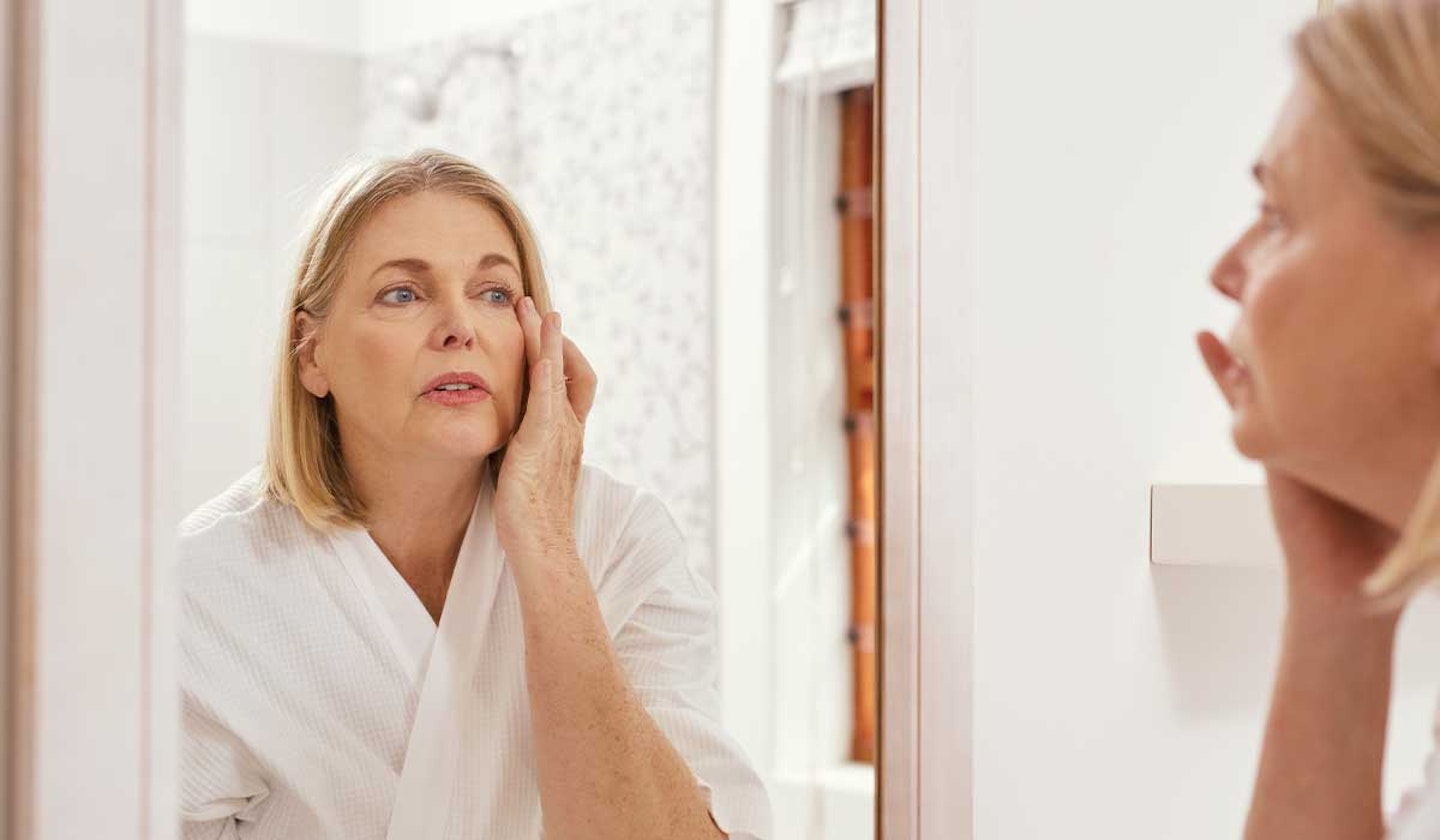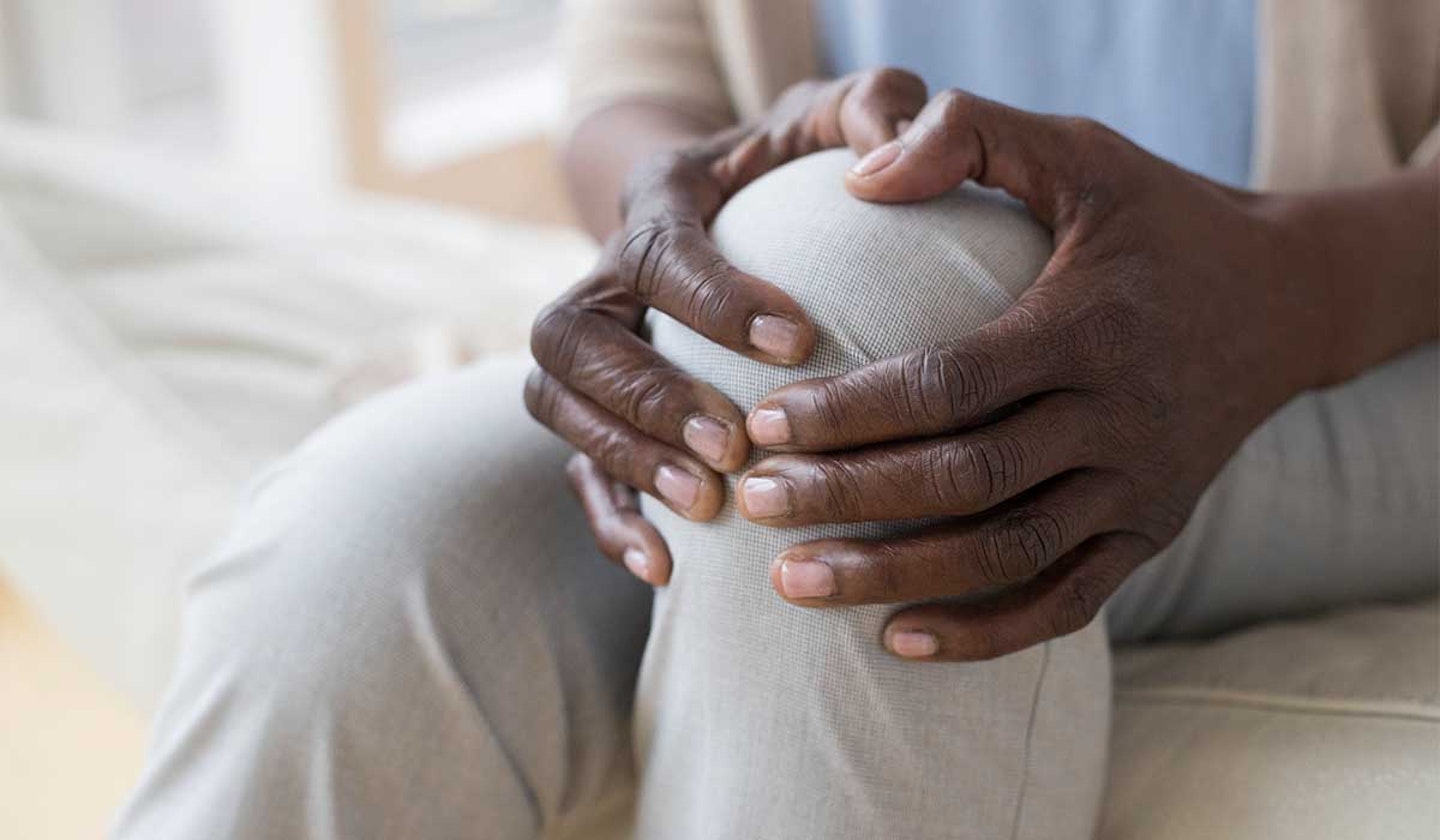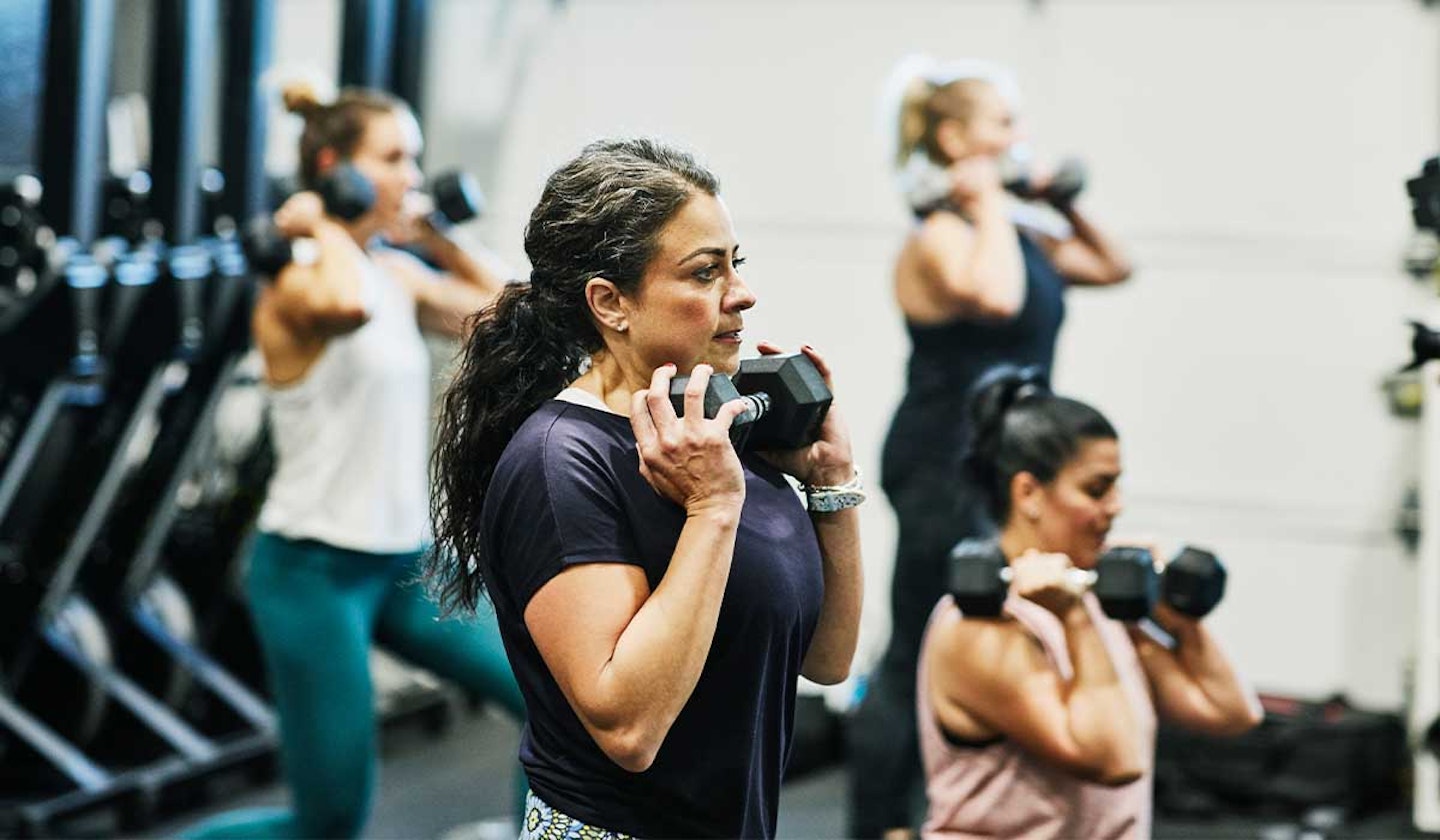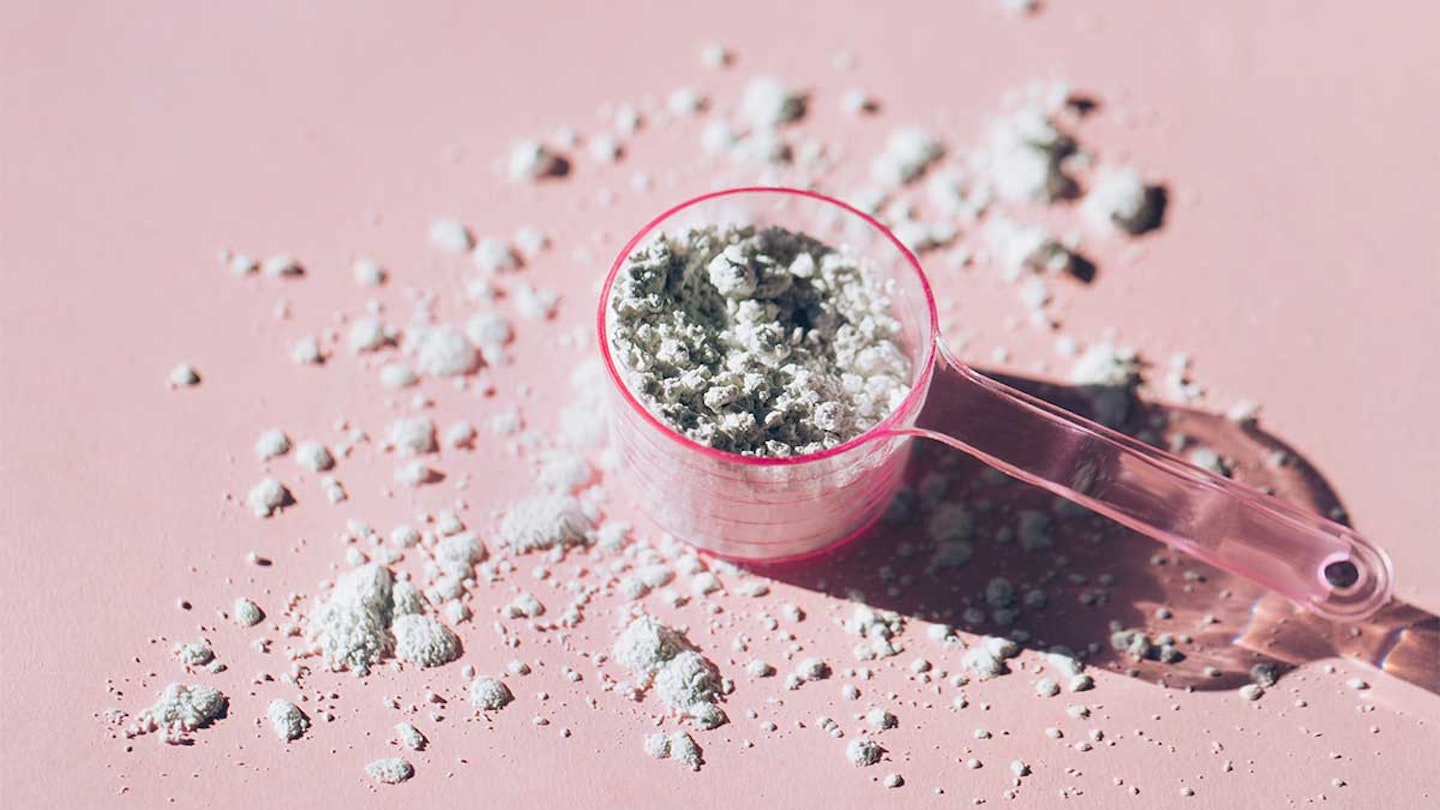You've probably heard collagen being mentioned in beauty advertisements and on bottles of supplements, but what are the benefits of collagen and how do they work?
The latest beauty buzz could be the key to youthful, glowing skin and could even benefit your health, relieving joint pain and preventing bone loss, according to studies. “Collagen is the most abundant protein in our bodies,” explains Kathryn Danzey, co-founder of collagen brand Rejuvenated. “It’s the key building block for everything; from the connective tissue in our vital organs to giving structure to our hair, skin, nails, bones, muscles, ligaments and tendons.” Read on for our guide to this ultimate anti-ager.
Why take collagen?
The most common reason people take collagen supplements is to benefit their skin, hair and nails and it's often hailed as a brilliant beauty supplement to give your appearance a healthy boost from the inside out. Another lesser-known benefit of collagen is how it supports our physical health too.
As a form of protein and the most abundant form of protein found in our bodies, collagen is the main component of connective tissues in our body, supporting our tendons, ligaments, bone health and muscles.
If you're considering investing in some collagen supplements to support your health, we've rounded up the top science-backed benefits of collagen to support your overall health.
5 benefits of collagen
Improves your skin health

Collagen plays a vital role in strengthening your skin's elasticity and hydration. As you age, your body produces less collagen which leads to the formation of wrinkles over time.
“Collagen makes up 75 per cent of our skin and 30 per cent of our total body protein, so it’s easy to see why collagen plays such an important part in the health of our skin,” explains Kathryn. “The name collagen comes from the Greek word ‘kolla’ which means glue, because collagen holds our body together.”
Ageing plays a part in how much collagen our body produces. “Collagen levels decline by as much as 1.5 per cent a year from our mid-20s,” says Kathryn.
“We start to lose more than we make and lines start to appear. Oestrogen is also vital for healthy collagen levels, but as our oestrogen levels decline when we hit the menopause collagen loss becomes more dramatic, further affecting the condition of the skin.”
Collagen as a molecule is too big to penetrate the skin’s dermis when applied topically, so can’t actually boost collagen levels as some skincare products would have you believe. That doesn’t mean you need to bin your beauty favourites though, collagen-boosting face creams and serums can still temporarily improve skin texture. Collagen supplements, on the other hand, contain smaller collagen fragments meaning they’re absorbed more easily for our bodies to make use of.
There have been a number of studies into the benefits of collagen and how it helps delay the ageing process with clear results that it slows down the process of wrinkle development while boosting the skin's moisture by keeping the skin hydrated which is why it's good to take collagen alongside your menopause supplements.
Oral supplements, whether that's taken with a pill or a powder often diluted into water, stimulate the body to produce collagen by itself.
Another way it can boost our appearance is by encouraging our hair and nails to grow longer too, and you'll probably find some of the leading supplements for hair growth contain collagen.
Combats joint pain

Your cartilage is what protects your joints, and collagen can help maintain your cartilage which as a result, decreases the risk of developing arthritis. Although the research into this varies, arthritis.org have found that some of the research showed collagen reduced pain and stiffness in one trial.
Many believe this is due to collagen's anti-inflammatory properties as well as boosting the cartilage. More research is needed into its true impact on joint pain, so we'd recommend still taking your daily supplements for joint pain.
Helps improve bone density
Did you know your bones are made up mostly of collagen? Over the years, as our collagen levels decrease our bone density decreases too, causing an increased risk of bone fractures.
There have been many successful studies to back this theory, and certain types of collagen supplements have been proven to reduce the chances of developing bone problems such as osteoporosis.
Supports heart health
As well as making up your bones, collagen also provides structure to your vital arteries which keep blood flowing to and from your heart.
Studies have found that patients who take collagen supplements saw a significant reduction in cholesterol, therefore improving blood flow and therefore, reducing the risk of heart attacks and strokes.
Improves muscle mass

As well as a reduction in bone mass as we age, there's also a reduction in muscle mass too. In one study, increased muscle mass and strength were found in men that exercised while taking collagen supplements.
Researchers think this is down to collagen stimulating muscle growth after exercise and synthesising the muscle protein, creatine.
It's worth noting however that whey protein is far more effective than collagen when it comes to building muscle mass so we wouldn't suggest swapping this out.
What are the side effects of collagen?
One of the reasons collagen is such a popular supplement to take is that it has little to no reported side effects.
Some have reported feeling some digestive side effects such as nausea, bloating and heartburn but there has been very little research done around these claims.
Unlike your vegan multivitamins, most collagen is made from animal products such as fish, shellfish and eggs, all of which are allergens, so it's important to check all the ingredients before taking collagen, especially if you have any known allergies.
Are there specific types of collagen to target different things?
While there are 28 different kinds of collagen, there are only four commonly found in supplements we take. These are:
• Type I: A good general collagen which is found in all connective tissue.
• Type II: Found in joints, this is a good one to take if you're struggling with joint pain and want to give your cartilage a boost.
• Type III: The kind you want to take to boost your skin health and blood vessels.
• Type IV: This is the collagen found in your kidneys, eyes and inner ears so is great for your health.
How long does it take to see results?
As with many vitamins and supplements, seeing results is a slow process, and it can take at least eight weeks to see any noticeable results.
This is the case for more physical improvements such as skin and joint pain relief but it may be as long as 12 months for bone health improvement.
Alternatives to collagen
Whether you can't take collagen supplements due to your diet or allergies, there are other ways to get your nutrients through your diet. “As a protein, you’ll find collagen in meat and fish, but the molecule is too large to be broken down and absorbed around the body,” explains Kathryn. “However, following a healthy diet is still really important as you need to provide your body with the required protein, vitamins and minerals to support collagen formation. Likewise, avoid the usual sugary and salty foods, which weaken and break down collagen.”
Zinc and copper – are both required for helping our bodies form collagen. Good sources include red meat, shellfish (particularly oysters), nuts, seeds and Shiitake mushrooms.
Vitamin C – rich foods are key for collagen production in our bodies. Good choices include sweet red peppers, broccoli, oranges and strawberries.
Lean protein – is broken down to amino acids by our digestive system and this is then combined with Vitamin C, zinc and copper to produce collagen. Include plenty of chicken, turkey, white fish, eggs, nuts and seeds in your diet.
Lorna White is a Senior Digital Writer at Yours.co.uk. She was previously a writer at Yours Magazine writing features and news stories before joining the digital team. Lorna loves the great British countryside and likes to spend her spare time out and about in her home of Nottinghamshire walking her dog, Pippin.

